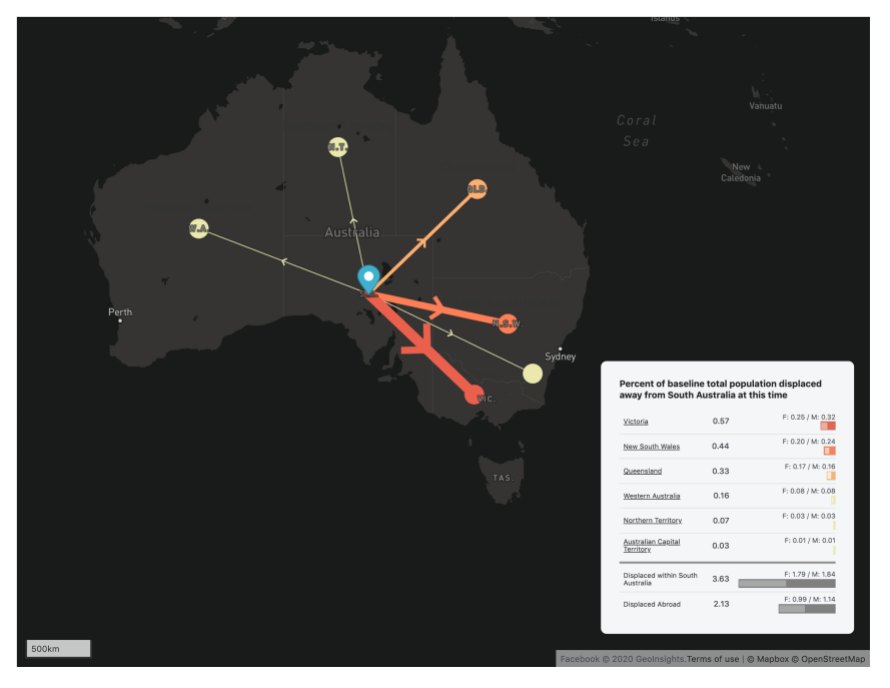If we want to make progress on the 17 Sustainable Development Goals (SDGs) adopted at the United Nations in 2015, the next decade really matters. Goal #17 is to use partnerships to strengthen sustainable development work around the world. Today, Facebook is announcing Project17, a new initiative that takes a partnership approach to help drive progress on the SDGs. Our first area of focus is gender equality.
One of the biggest barriers to achieving the SDGs, according to the UN, is a lack of access to real-time and representative data. So we’re working with gender equality organizations and experts to help provide this data and close the gender data gap. Our goal is to increase the availability and use of gender data, which is critical to guiding the development of inclusive policies, programs and services, and for tracking progress on achieving gender equality.
Much of the data available today is gender blind: it doesn’t account for differences in men and women’s lives. Missing or unavailable data around women’s experiences creates gender data gaps, an incomplete picture of people’s experiences around the world, and an inability to accurately measure progress. In STEM fields, for example, we don’t have accurate global breakdowns of women versus men working in artificial intelligence or data science — basic information that could help us achieve SDG #9, inclusive growth and innovation.
Gender Data Research and Findings
Over the last six months, we’ve met with partners and experts, including Data2x, Girl Effect and the Global Partnership for Sustainable Development Data to better understand gender data needs and constraints. We partnered with Ladysmith, an independent research firm, to conduct expert interviews, review academic research and produce a report identifying areas where tech companies can help strengthen the gender data ecosystem.
Today, on the heels of International Women’s Day, and inspired by the 64th session of the Commission on the Status of Women, we’re sharing Ladysmith’s report. It identifies gender data gaps across many different areas, including the data used by policymakers to inform decisions and the data used to understand global challenges such as climate change induced migration.
The report also found a lack of communication between tech companies and gender equality organizations, recommending they work closer together to close gender data gaps. It suggests tech companies leverage their resources, including data scientists, to uncover new insights from existing data, share some of their own privacy-protected, de-identified datasets, and develop new tools to help researchers answer critical questions.
Our Commitment
This research is a catalyst. We will work with development organizations, experts and other trusted partners to leverage Facebook’s dataset to bridge gender data gaps, answer research questions, and help drive progress on gender equality. Here’s how.
First, we will provide gender-based breakdowns of some of our existing Data for Good work. We asked our partners which insights would be most valuable if broken down by gender, and they highlighted Facebook’s Displacement Maps, which are part of our Disaster Maps product. Displacement Maps already share real-time data on population movement with humanitarian response agencies, helping to determine community-specific needs in times of crisis. Our partner, the Internal Displacement Monitoring Center (IDMC) explained how sharing this data could help humanitarian aid agencies meet the needs of affected communities more efficiently. Early results show that partners with access to these maps understand what proportion of those displaced are men and women, where women are relocating, and when they are able to return. All of these calculations use aggregated and de-identified data from people using Facebook on their devices who have opted in to location history.

Next, in partnership with the World Bank Group and EqualMeasures2030, we’ll leverage the wide reach of our apps to run a global survey focused on gender equality. This will build on the success of the Future of Business survey, which we’ve been partnering with the World Bank and OECD on to survey small businesses around the world on Facebook. We’re also working with The Institute for Technology and Social Change, TechChange, to develop educational tools that share information about the ways unconventional datasets could be used in gender and development projects. Throughout 2020, we’ll continue to explore what datasets we should build to provide helpful insights based on the priorities identified in the report. Again, all data shared will be anonymized, aggregated and de-identified.
The Path Forward
It will take more than data to achieve gender equality and reach the SDGs. We need deeper collaboration between tech companies and development organizations to pave a path forward. The tech community has resources, unique data and data science capacity. Academics and practitioners within the gender and development community have thematic expertise and proximity to affected communities.
We hope Project17 helps our partners make progress on the SDGs and that our focus on gender data does its part to help improve gender equality around the world.
You can read the full report here.
